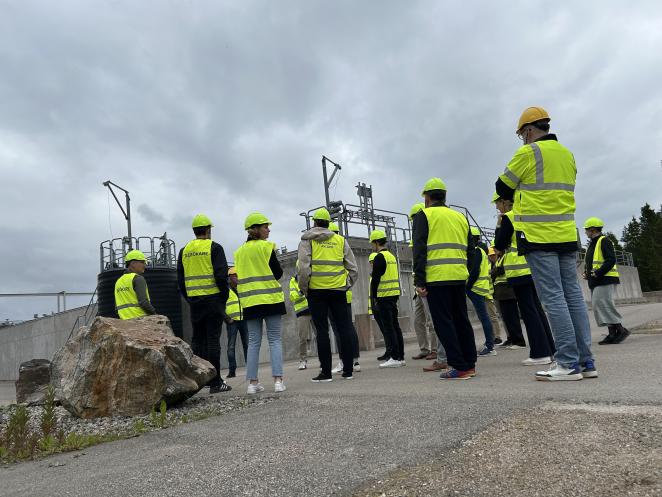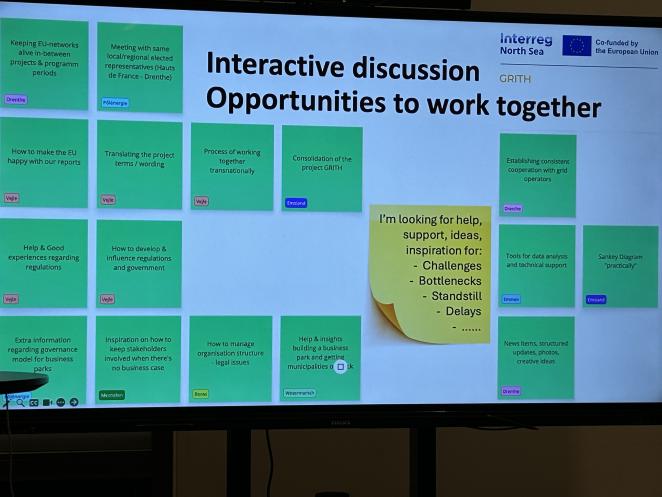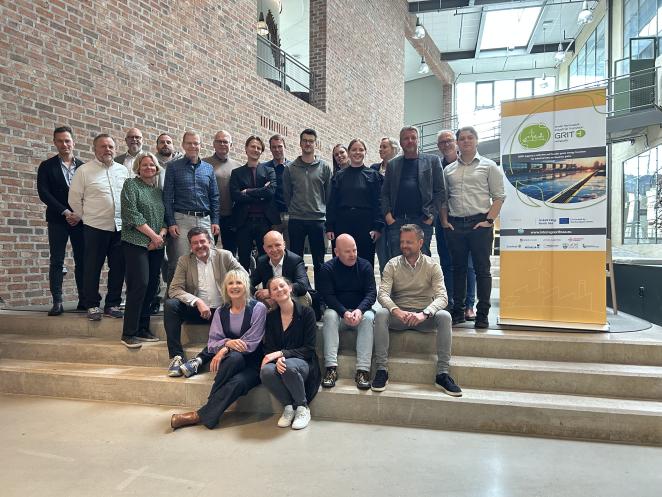From May 21–23, GRITH partners gathered in Borås, Sweden, for an energizing meeting full of exchange, inspiration, and concrete steps towards sustainable energy solutions for industrial areas.

Reflections & results
Jonas Wilderström from Borås opened the meeting at the Textile Fashion Centre with insights into the local context and the City's ambitions. Then the programme kicked off with an introduction by project coordinator Hein Braaksma who set the stage for the days ahead.
The midterm review results indicate that the project is well on track, pilots are in motion, and the partnership's high ambitions are being realized.

GRITH visits Boras Energi och Miljo
Visiting Viared & more
A number of inspiring site visits showcased local initiatives. These included the redeveloped textile factory and a bus tour of the Viared industrial area, where collective energy sharing and regulatory barriers were topics. The expansive and impressive Viared Västra industrial area is a major investment by the City of Borås, providing more space for companies over 80 hectares. It is expected that the entire area will be completed in 2026.
The group also visited a waste facility just outside Borås. The Sobacken facility receives waste from Borås households and businesses, both residual waste, food waste and recycling material, and aims to create Sweden's most sustainable recycling city. Borås Energi och Miljö is responsible for infrastructure in Borås such as district heating, waste management, water and sewage. The company is part of Borås Stadshus.

Sharing opportunities to work together
Strategies & Practice
Returning to the meeting venue, all partners presented updates and approaches, from hydrogen infrastructure and smart grid systems to business models for energy sharing, which are all navigating local challenges and regulations. While some need to sharpen focus, others have valuable strategies to exchange. This is the true essence of transnational cooperation!
Some notable experiences from Drenthe, for example, include the Community of Practice Energy Hubs and the revitalisation of the Emmen Industry Table. The innovative approach to tackling grid congestion through the Community of Practice accelerates progress on grid congestion, particularly on industrial estates by bringing in experts, sharing knowledge, and coordinating agreements with grid operators. This not only lowers costs but also builds a collective framework for solving shared challenges.
Henk Slabbekoorn from the provincial authority presented a step by step guide for a legal framework asdeveloped by CoP Energy Hubs in Drenthe which was highly valued by other partners struggling with the process.

Frida Andersson from the City of Borås
The Borås approach
The final day zoomed in on Borås’s own climate strategy. As part of the Viable Cities cooperation programme, Frida Andersson explained how the city aims to become fossil-free by 2030 — a bold ambition backed by trust-based policymaking, green bonds, and a carbon budget.
Malin Unger from RISE clarified Sweden’s energy community regulations, while Carl Borgemar (Viared Business Association) and Anders Uhred (E-commerce City) underlined the importance of strong local collaboration and stakeholder engagement in moving from vision to reality.

GRITH partners at the Textile Fashion Centre in Boras
From plans to pilots
In the closing panel, participants agreed that unclear regulations, financial uncertainty, and the slow pace of grid operators are key barriers. Still, there was strong motivation to move forward by launching small, focused pilots, sharing success stories, and using those to influence policy and accelerate change.
As one participant aptly put it:
“Nothing is impossible. The impossible just takes a little longer.”
